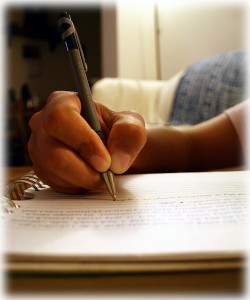--Original published at Loretta Gabrielle
For chapter 8 impression post I chose the first prompt relating to memory in study habits. Looking at my current study habits I have a large room for improvement as this class online differs from a regular class during the semester. Something I need to adjust for my study habits is prioritizing and becoming better at balancing my priorities. During the school year my main focus is school whereas now, this is one class while I work 10.5+ hours a day. Knowing I work most days for large parts of the day, organizing when and what work I am going to do will better the way I learn bit by bit each day.
When I take notes in the lecture or from the book I look for key parts in order to take good notes rather than looking to understand the material fully. This could be for several reasons but the point being is that it is unbeneficial. The way I studied for the first exam was through the worksheets presented and the study guide. Normally during the year I mainly use flashcards as my main studying technique as I take tests better when I am confident and have memorized the material. Although I know that memorization for a test isn’t beneficial, flash cards seem to be the most impactful in narrowing down and learning the information I need to understand. To improve my first exam for Monday, I plan on being proactive rather than reactive. I know there is an exam due and so from this part I restudy the points I missed by reviewing my notes from the first exam along with the notes from the current exam chapters. Rather than hoping to study the night before. Rather than this I will pace myself throughout the remainder of the week and weekend in order to accomplish these tasks which will build my confidence and prepare me for a better exam. Lastly, getting more sleep is a key factor in improving my study habits.
The most realistic goals to improve are:
1. More sleep
2. Flash Cards with useful skills (narrowing down the important parts in a clear way
3. Actively studying every day in order to use as building block and rather than to accomplish the task of that night.
Learning and memory for the most part go hand-in-hand. Learning is the skill and memory is demonstrating it with speed and confidence. There are three different types of memory which include sensory, working/short term, and long term memory. In order to have the best results on the test, studying the information for your short term memory does nothing benefical in the long run. It is vital to study a little but every day in order to build your learned skills and to become a strong memory.

